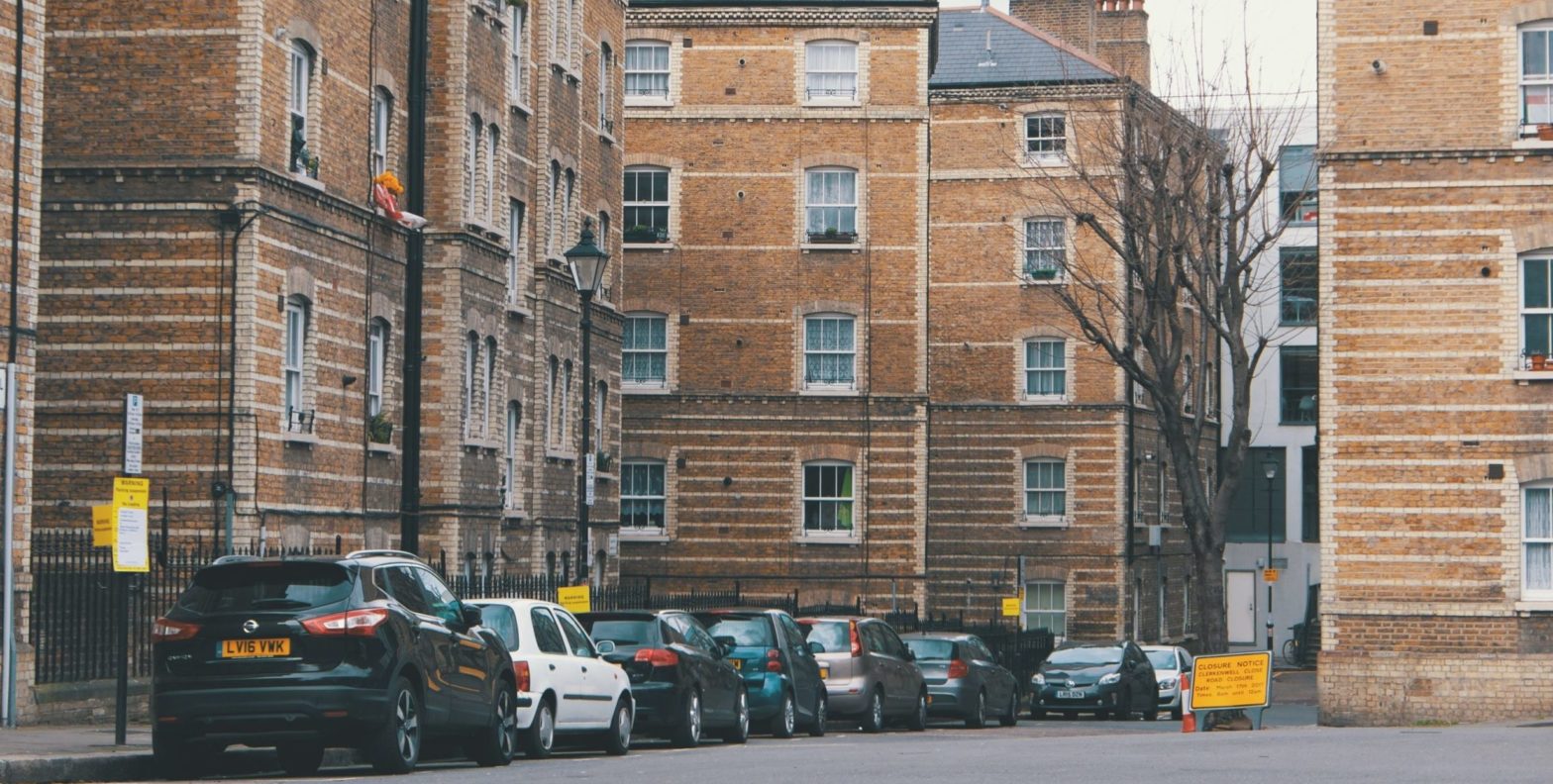
Photo: Nomadic Julien on Unsplash
More UK councils adopt emissions-based parking charges
10 August 2023
by Christopher Carey
In a bid to cut transport pollution, emissions-based parking charges are a growing trend in London and other UK towns and cities.
Most recently, the London borough of Greenwich introduced changes to its parking charges which will see motorists with more polluting vehicles paying almost three times as much as cleaner cars.
Charges will vary considerably based on location, emissions and payment method – with 39 different fees ranging from £0.70 to £7 (US$0.9 to US$9).
Those using pay and display machines will pay a flat fee of £2, £5 or £7, with only location and time taken into account.
People paying via the app and who have a vehicle that emits less than 255g of CO2 for each kilometre driven receive an automatically calculated discount.
“We’re committed to improving air quality and cutting pollution in Royal Greenwich, to help make the borough a greener, safer and more attractive place to live,” said Cllr Averil Lekau, Greenwich’s Deputy Leader and Cabinet Member for Climate Change, Environment and Transport.
“These changes to parking charges and permit costs will encourage residents and businesses to embrace more environmentally friendly ways to travel, including using public transport, low emission vehicles, walking, cycling and scooting.”
In 2019, transport was responsible for 31 percent of the borough’s total CO2 emissions – with 95 percent of these emissions coming from vehicles like cars, vans and trucks.
Resident and business parking permits in Greenwich, including new applications and renewals, will also be charged based on the vehicle’s CO2 emission categories, as registered with the UK’s Driver and Vehicle Licensing Agency (DVLA).
The new system will use 13 emission bands, with the most polluting vehicles paying double that of electric vehicles.
If more than one vehicle is registered at the same address, a £100 surcharge will also be applied for each additional vehicle. Furthermore, all diesel vehicles will incur a £50 surcharge.
“We understand cost increases can be a challenge, particularly during a cost-of-living crisis,” a council spokesperson told Cities Today.
“To help people affected by the changes, we’re investing £3.1 million to improve our transport network to encourage people to walk, cycle and use public transport.
“As well as a variety of improvements to make our roads attractive for pedestrians and cyclists, we’re also working with external partners to offer more EV charging points and create new car clubs in the borough.”
Growing trend
Greenwich is not the first London council to introduce emissions-based parking fees. Lewisham, Merton, Newham, Croydon and Lambeth already have similar charges.
Elsewhere, St Albans in Hertfordshire has adopted an emissions-based charging structure for parking permits, and Bath and North East Somerset Council recently consulted on the introduction of vehicle emission-based parking charges in council-owned car parks in Bath.
Westminster City Council reported a 16 percent reduction in older more polluting vehicles parking in the Marylebone Low Emission Neighbourhood as a result of a diesel surcharge on metered parking introduced in 2017, with no displacement to nearby areas.
In Lambeth, there are now 26 different charges to park for an hour, depending on a car’s tax band and whether it is diesel, petrol or electric.
Cllr Rezina Chowdhury, Lambeth Council deputy leader and Cabinet Member for Sustainable Lambeth and Clean Air, said: “We were the first London borough to declare a climate emergency, and we have set a target to slash our carbon emissions to make Lambeth a net zero borough by 2030.
“These changes will make our parking fees structure fairer and more reflective of the different levels of pollution produced by vehicles – and ensure those who pollute the most are charged the most to park.”
The council ran a public consultation regarding the changes, which were introduced on 30 May.
Of more than 2,900 responses in the consultation, 59 percent objected to the proposals.
When asked if any complaints had been received from members of the public since the introduction of emissions-based charges, a Lambeth council spokesperson told Cities Today: “We work to ensure our services are clearly communicated and promoted to our residents.
“We welcome feedback on the proposals and changes, although note that this is often nuanced.”
Debate over emissions-based charging
The growth of emissions-based parking comes amid debate over London’s Ultra Low Emissions Zone (ULEZ), which is set to expand this month. Under the scheme, drivers will face a £12.50 daily charge if they do not meet ULEZ emissions requirements.
At the end of July, five London borough councils lost a High Court challenge against the expansion of the ULEZ area, which is set to come into effect on 29 August.
The five council leaders who took the case to court pledged to “continue to fight”, saying they would now push the UK government to change the law to force London Mayor Sadiq Khan to consult them on the continuation or expansion of the scheme.
Following the High Court decision, UK Prime Minister Rishi Sunak also weighed in on the issue, saying Mayor Khan should “think twice” on his plans to expand the ULEZ, and that the move was an “unnecessary extra tax” when inflation was “causing a hassle”.
Last week, Mayor Khan expanded the ULEZ scrappage scheme to all Londoners.
He said: “I have always said that expanding the ULEZ to the whole of London was a difficult decision, and not one I took lightly – but it’s a decision I remain committed to seeing through.
“I’m not prepared to step back, delay or water down vital green policies like ULEZ, which will not only save lives and protect children’s lungs by cleaning up our polluted air but help us to fight the climate crisis.”
Photo: nomadic-julien-unsplash











